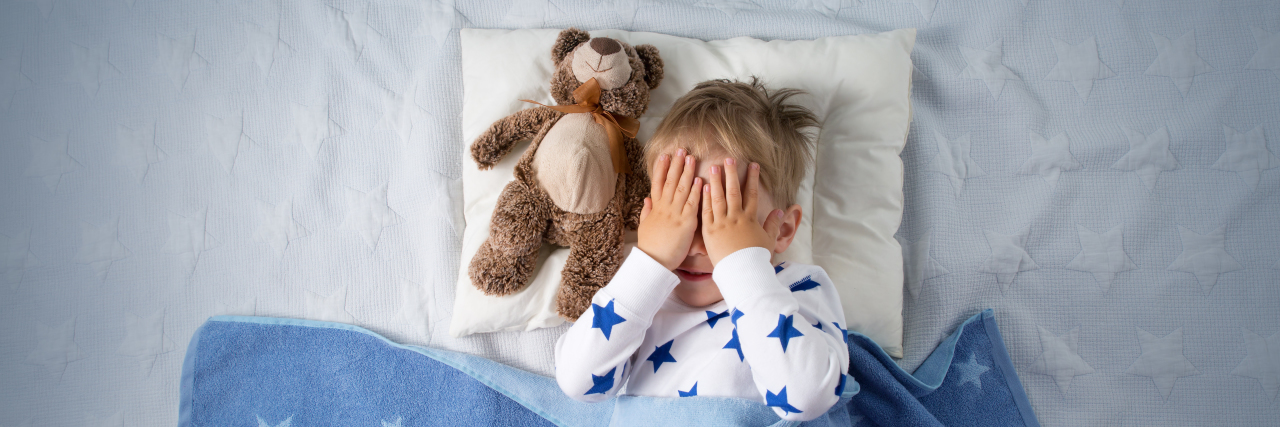If only it were that easy.
When I was giving a masterclass presentation as part of my job as a professional speaker on autism and sleep challenges, I brought up one of the most frequent comments parents hate to hear which is, “Don’t worry so much. Your child will ‘sleep when they’re tired.'”
All I can say to the parents that have heard this comment is “I feel for you.” Growing up with autism, I had extreme challenges trying to go to sleep and also staying asleep due to my sensory challenges. Studies show up to 80 percent of children with autism have some form of sleep challenges.
While my sleep challenges would get better over time, it would often affect my social interaction and academic performance when I started school.
In my adolescence, my parents realized that meeting me where I was in my development was important. They discovered that light and noise were my two key challenges. Window shades helped completely block out any external light. My parents also realized that because I sleep on my side, noise-canceling headphones were an uncomfortable solution. Being from Jersey City, New Jersey, where there’s often a great deal of noise from cars and unexpected sirens, they invested in tinted windows which would help block out most of the noise.
Later on, as a teen, being part of our school’s basketball team helped me become the most physically fit I ever was in my life, which also made me realize the impact of physical activity on sleep. I realize that when I’d have games/practices in the morning/afternoon I would sleep much better than I did when these activities would happen at night, as I’d be too wired. The constant physical activity also helped me sleep throughout the night, because I had fewer stomach issues which would wake me up. Today I recommend at least 30 minutes of cardio three times a week and six to eight glasses of water daily to help fight any stomach challenges.
While my parents weren’t aware of weighted blankets at the time, they also invested in heavy comforters which helped provide deep pressure to help me sleep.
Finally, in my adult years, when my physical activity slowed down a bit, I talked to my healthcare professional about starting melatonin. I used it for a few years before I found a better routine of physical activity, which I’ve stayed consistent with to this day.
I know this issue may feel like a marathon at times, but trial and error is important. I hope that regardless of where your child is in their development, you may find me sharing my story today helpful in the pursuit of a good night’s sleep for everyone in your family.
Getty image by LeManna.


